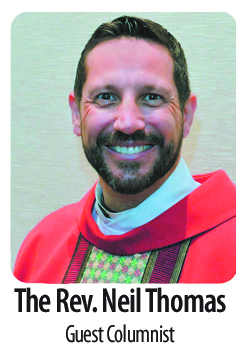Religious institutions found themselves at the center of the COVID crisis, finding ways to continue to worship while responding to grief
 More than 570,000 Americans have died from COVID-19. That’s more deaths than American soldiers lost in World War II, the Korean and the Vietnam wars combined.
More than 570,000 Americans have died from COVID-19. That’s more deaths than American soldiers lost in World War II, the Korean and the Vietnam wars combined.
But pandemics and wars are difficult to weigh against one another. Wars typically happen far away, and those who go to fight them understand that they may not return. In a pandemic, death comes to our shores, and everyone is enlisted. It’s a moment in time that has the power to shift our sense of being.
As a minister and leader of a congregation fighting on the home front in this battle, I have seen more heartache and loss than any society should have to endure. Religious institutions found themselves at the center of this crisis as we attempted to respond to the toll of human grief while finding novel ways to gather together and live out our faith.
I am proud of our efforts at the Cathedral of Hope. We started Zoom groups, recorded messages of encouragement and broadcast sermons from empty sanctuaries into living rooms. On many Sundays, the liturgy of the pandemic was about making do with what you have and hoping some of it sticks.
I’m not sure if we always succeeded, but we persevered through stress, uncertainty and sometimes tragedy to find ourselves on the cusp of victory. As vaccines are distributed, herd immunity is eventually achieved, and restrictions are lifted or modified, many churches are preparing to return to in-person worship.
This is an exciting moment. COVID has been a worthy opponent, and it feels like we are nearly on the other side of it.
But our David and Goliath moment may just be getting started, and we can’t let our excitement obscure the challenges ahead.
Like King David in the Bible, it would have been easy to let fear consume us as we faced the giant standing before us. In the story, David was outsized and outmatched, but he did not let fear get in the way. It took courage and encouragement — the things we’ll need most going forward — to face new challenges ahead.
We may have slain one giant, but new ones will emerge, and having courage to face them doesn’t mean fear disappears.
It means we stand strong no matter what tries to knock us off our feet.
With in-person worship services, we may never recover to pre-COVID level. We may have to deal with the personal trauma of returning. We may be frightened of trying to establish a kind of normalcy that doesn’t exist yet, to accept that some of us can’t go back to “before” — and this is where our worship spaces and family in faith can help. We can encourage one another as we walk through the doors once more, in faith that we are right where we need to be, while fully recognizing and respecting another’s choice to continue to worship from home where they need to be.
We must also learn to trust again. After spending so much time away from friends and colleagues, we will have to re-learn what it means to live in a community again. We may wonder, “How can I trust my neighbor to mask up, or stay home if she’s sick?”
Doubts have taken hold of us because we have been deprived of opportunities to be vulnerable, to serve and be served by one another, to simply interact with others on a regular basis for more than a year.
For most of us, we have been forced to become more self-sufficient. But healthy societies and congregations rely not on individualism alone in hard times but on relationships we build with one another. It will take some time, but I am confident trust will return to our worship spaces.
Finally, we’ll need hope. A pandemic is nothing if not a hope-killer. It stretches us, tests us, brings us to the very edge of despair. But I have hope that you will find hope in the coming days and weeks.
I have hope not only because the end of this pandemic is near but, most importantly, because I choose to exercise encouragement and to trust in others. Our job isn’t to find superhuman strength during a pandemic; our job is simply to love and lean on one another.
We must love others as we have been loved. This is the fertile soil where hope, when cultivated in a community, will blossom.
The road to full recovery may take longer than we might like, and many churches will choose to continue with online or hybrid options that proved so valuable during COVID. Our church will do so.
Regardless of how our communities move forward, one thing is certain: We must move forward together. By encouraging ourselves and others, building trust, and cultivating hope in our lives, we can defeat any giant that stands in our way.
The Rev. Neil Thomas is senior pastor of Cathedral of Hope United Church of Christ.











